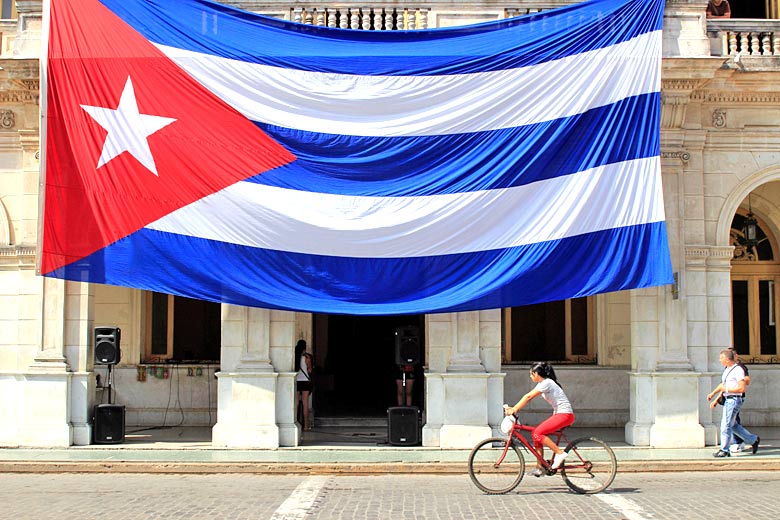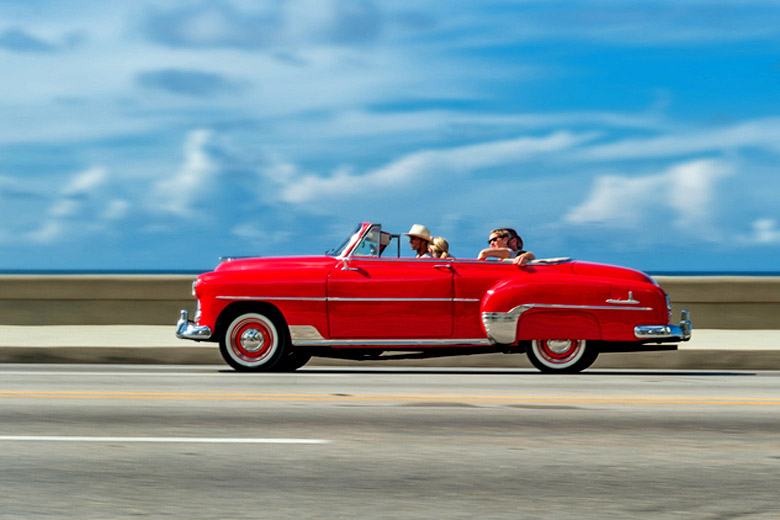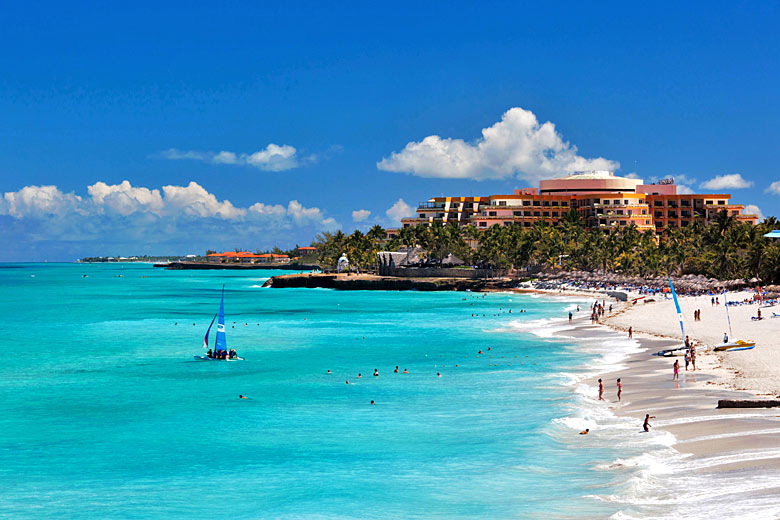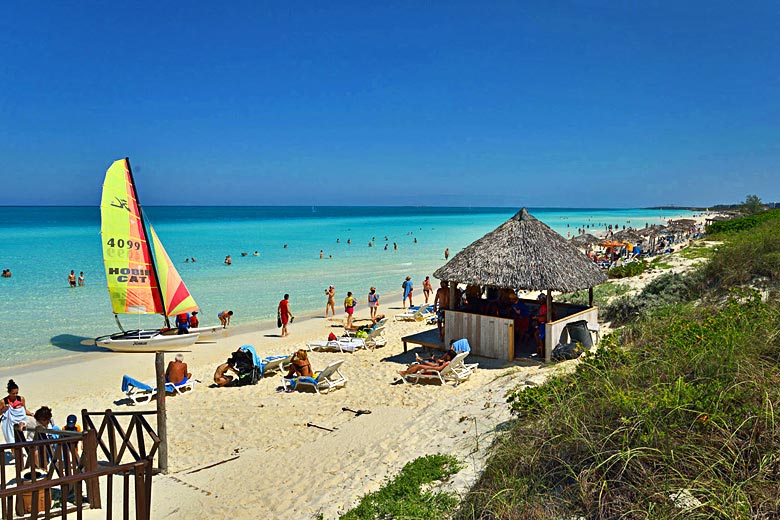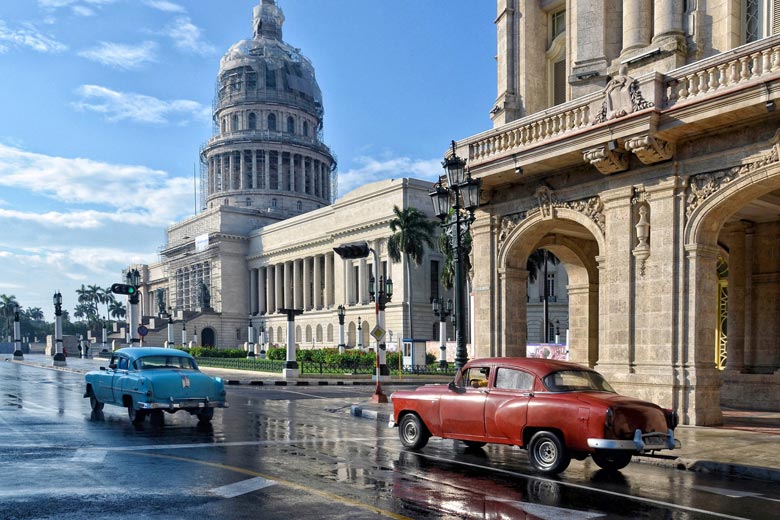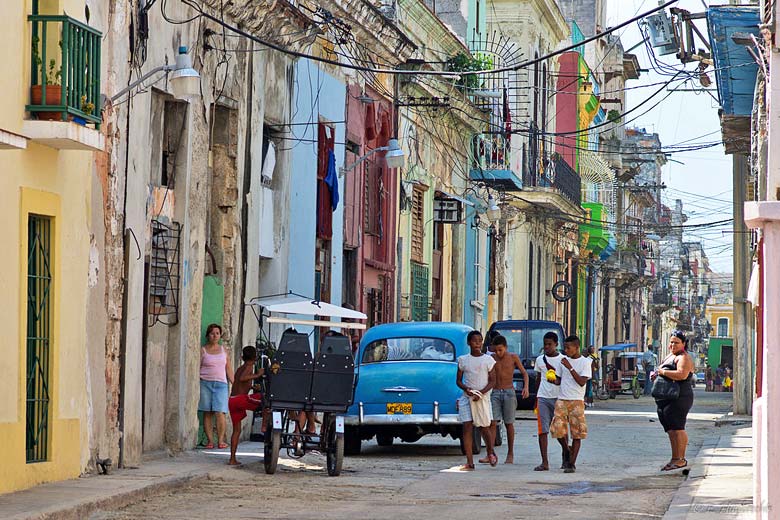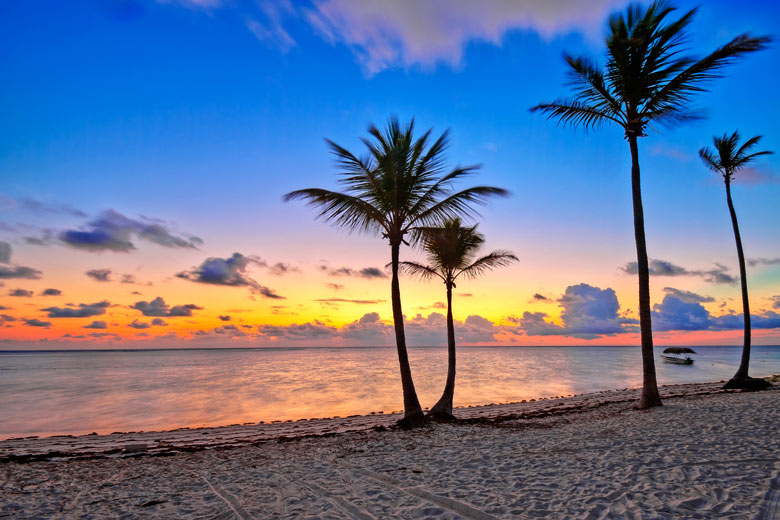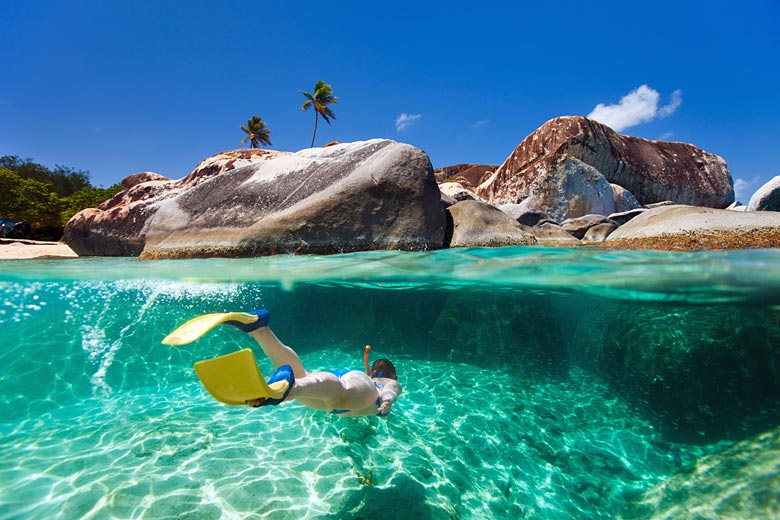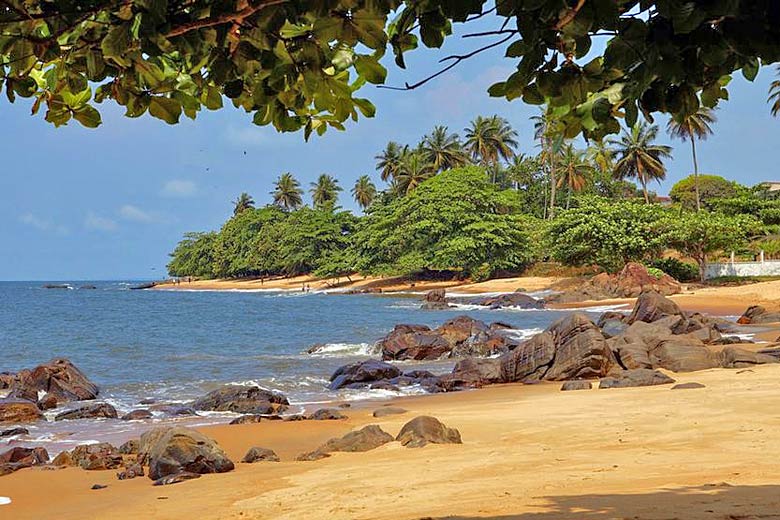- Book online & save up to 4% on Marella Cruises
- Discount varies by season. Book online with TUI
- Destinations across the Med, Caribbean & USA
Best time to visit Cuba
Cuba weather is hot in summer and rarely cold in winter, and there is plenty of sunshine throughout the year.
- Best time to visit
- Weather by month
- 5-day weather forecast
- Destinations
- Travel advice
- Deals & discounts
Cuba by month
Jan Feb Mar Apr May Jun Jul Aug Sep Oct Nov Dec
Recommended for Cuba
 Cruise deal finder
Cruise deal finder
Top Cuba destinations
Below are the temperatures expected today at popular countries, regions and places in Cuba. Select a destination to compare today's forecast with average weather conditions.
All Cuba destinations
- Baracoa
- Camaguey
- Cayo Coco
- Cayo Ensenachos
- Cayo Guillermo
- Cayo Largo Del Sur
- Cayo Levisa
- Cayo Santa Maria
- Ciego de Avila
- Cienfuegos
- Guardalavaca
- Havana
- Holguin
- Jibacoa
- Maria la Gorda
- Matanzas
- Nueva Gerona
- Pinar del Rio
- Playa Giron
- Playa Pesquero
- Santa Clara
- Santa Lucia
- Santiago de Cuba
- Trinidad
- Varadero
- Vinales
When is the best time to visit Cuba?
The best time to visit Cuba (Havana) is March and April based on the following average weather conditions.
Maximum daytime temperature = 22 - 30°C [remove]
Daily hours of sunshine = 10 hours or more [remove]
Change the criteria to reflect your weather preferences.
Max Day Temperature (°C)
- Jan
 26
26 - Feb
 26
26 - Mar
 28
28 - Apr
 29
29 - May
 30
30 - Jun
 31
31 - Jul
 32
32 - Aug
 32
32 - Sep
 31
31 - Oct
 30
30 - Nov
 28
28 - Dec
 27
27
Which is the hottest month in Cuba?
The hottest time of year in Havana, Cuba is normally August. Expect maximum daytime temperatures to reach 32°C with very high heat and humidity.
Which month has the most rain in Cuba?
In terms of rainfall, June is usually the wettest month in Havana, Cuba with 194mm on average. There are normally 13 days in June with some rain.
When is it sunniest in Cuba?
The sunniest time of year in Havana, Cuba is normally September with bright sunshine on average for 82% of daylight hours; that's 10 hours of sunshine per day.
When is the sea warmest in Cuba?
The sea is usually at its warmest in Havana, Cuba in August when the water temperature reaches 30°C.
Best time to visit
The weather guide for Cuba (Havana) shows long term weather averages processed from data supplied by CRU (University of East Anglia) & today's weather forecast provided by meteoblue. Find out more about our data sources.
Metric (°C / mm) | Imperial (°F / inches)
Cuba weather overview
In summer in Cuba it rains but never for too long while in winter it is warm and sunny with only occasional periods of cooler, cloudy or wet conditions. Cuba is an ideal year-round holiday destination.
Cuba has grown in popularity as a holiday destination since the late 1990s with about 3 million visitors arriving in 2012.
From the UK there are direct flights from London Gatwick and Manchester with flights times of between 9 and 10 hours.
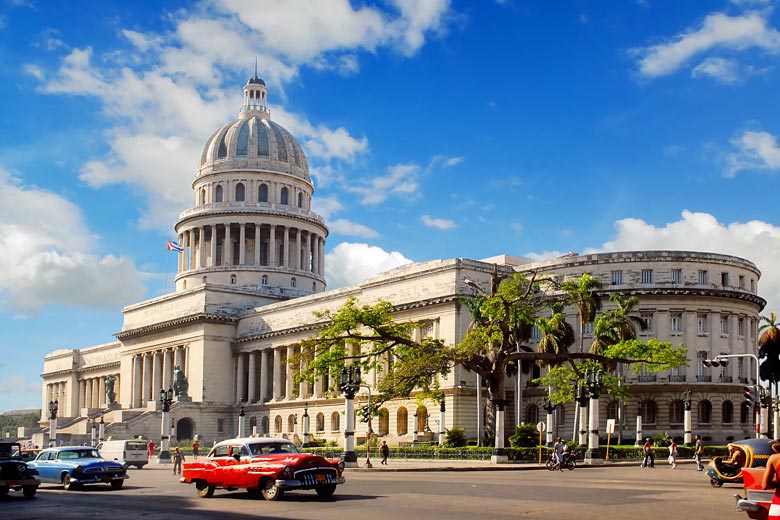
With its unique cultural heritage, fine colonial architecture and superb beaches Cuba has become a magnet for travellers of all ages out to explore as well as those who just want to sit on the beach. The local people are friendly and the island is by and large a safe place to travel.
There is plenty of countryside for bird-watching, hiking and cycling including mountains with some spectacular waterfalls.
Many people combine a week of exploring the island with another spent relaxing at one of the many beach resorts such as Varadero or Cayo Coco. Cubans love music and dance and really know how to throw a good party.
Cuba is by far the largest of the Caribbean islands, ten times the size of Jamaica, and lies just south of the Tropic of Cancer less than 100 miles from the Florida Keys. Cuba weather is tropical with distinct summer-wet and winter-dry seasons.
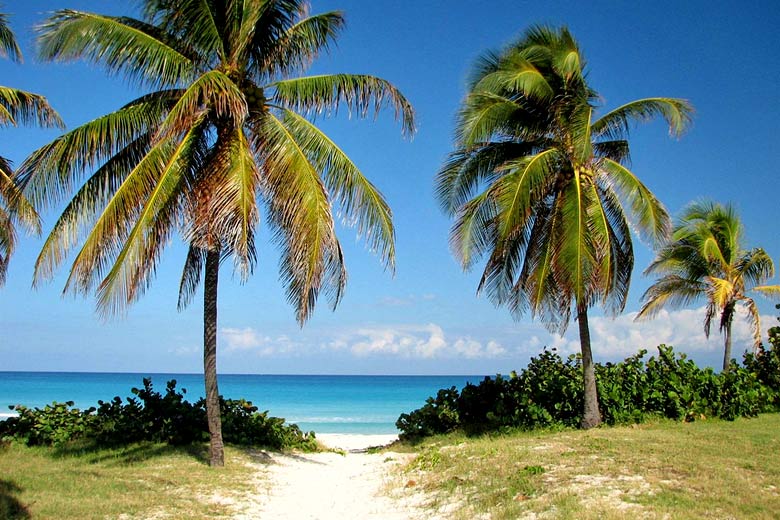
Much of the island is flat agricultural land with areas of low rolling hills, while in the far south there are two mountain ranges that dominate the south east region.
Nearly a quarter of Cuba's land-area is environmentally protected which includes eight National Parks.
There is a wet season during the summer from May to October when daytime temperatures rise into the low thirties Celsius and heat and humidity is very high.
However travellers should not be put off by the prospect of rain - there is plenty of sunshine as well. In fact it rarely rains for very long except when tropical storms move in from the Atlantic.
However travellers who are not accustomed to tropical conditions may find Cuba weather uncomfortably hot and humid in the summer months.
In which case our advice is the travel just before or after the wet season at the beginning of April or the end of October; the sea is still delightfully warm in October.
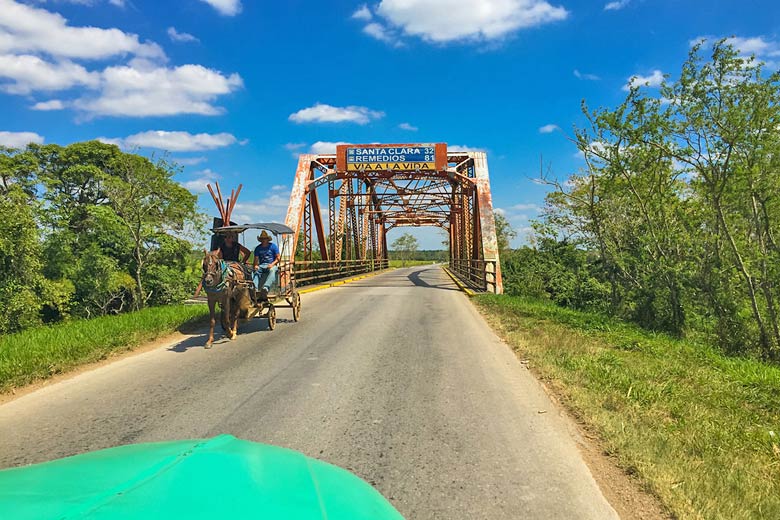
November to April is slightly cooler with far less rainfall and again plenty of sunshine. During this winter season average maximum daytime temperatures fall by about 5°C or 6°C to the mid twenties Celsius.
On rare occasions, usually in January and February, cold fronts can slip southwards from the Unites States bringing relatively cold weather, with temperatures sometimes falling to single figures Celsius.
However the average minimum temperature during the winter still remains a reasonable 17-18°C.
Most places in Cuba have between 7 and 9 hours of sunshine a day throughout the year. It is cloudier during the wet season than the dry season but there are also more hours of daylight in these months.
While along the coast in the far south-east it is generally cloudier than elsewhere because of the nearby mountains.
On the coast from May to November most rainfall occurs towards the end of the day i.e. from 3pm in the afternoon to 10 or 11pm at night. That's the 3 hours before and 3 to 4 hours after sunset.
Inland and especially near mountains it can start raining earlier than 3pm - say from noon onwards but also stops a bit earlier.
Tropical storms and hurricanes mostly pass through this part of the Caribbean during the wet season from May to October.
August and September are the months when a storm is most likely to affect visitors to Cuba - usually resulting in 3 to 5 days of cloudy wet weather and some high winds and seas.
The probability of a storm coming within 600 kilometres, let alone making a direct hit, is not as high as many people imagine.
In Cuba over the past 50 years just 5-7% of August and September days been disrupted by tropical storms.
Cuba has a year-round warm to hot tropical climate and receives most of its rainfall in the summer months between May and October.
During winter it is cooler and drier with substantially less rainfall and lower heat and humidity.
There is plenty of sunshine throughout the year, even during the wet season. However the island can be affected by tropical storms and even hurricanes during this time.
What to pack for Cuba weather
Cuba is a warm tropical country so from April to November light clothes are all that is needed.
An umbrella is also useful at this time of year; it can rain very heavily but generally you can see the rain coming and take cover.
Waterproofs are only necessary if you are planning to hike up into the mountains, especially in the Alejandro Humboldt National Park.
In winter, from December to March, an extra layer is recommended because in the evenings it is cooler. Also it is advisable to take a fleece in case a cold front drops down from the north.
Generally everyday products such as toiletries are difficult to find in Cuba or very expensive, so make sure you take everything you may need.
UV is very high so it is especially important you take enough sunscreen with you and wear it everyday even when it is cloudy because the sun is strong.
Local varieties of sun cream can be bought but they are not as effective as the products you can buy back home.
Cuba travel features
Do you want to learn more about Cuba? Read our latest features covering travel tips and insider destination guides on where to go and what to do in Cuba.
Be inspired
Get your weekly fix of holiday inspiration from some of the world's best travel writers plus save on your next trip with the latest exclusive offers
We promise not to share your details
Related posts
Popular travel offers
Explore holidays in the sun for less
- Beach holidays
- Family holidays
- City breaks
- Summer holidays
- Winter sun holidays
- Holiday offers
- Top travel brands
- Airlines & flights
- Discount hotels
- Airport parking deals
- TUI
- Jet2holidays
- easyJet holidays
- Love Holidays
- January sales
Airport parking
- Manchester Airport
- Stansted Airport
- Bristol Airport
- Luton Airport
- Birmingham Airport
- Edinburgh Airport
- Gatwick Airport
- Glasgow Airport
- Newcastle Airport
Airport lounges
- Manchester Airport
- Birmingham Airport
- Bristol Airport
- Edinburgh Airport
- Glasgow Airport
- Heathrow Airport
- Newcastle Airport
- Stansted Airport
- Gatwick Airport


















